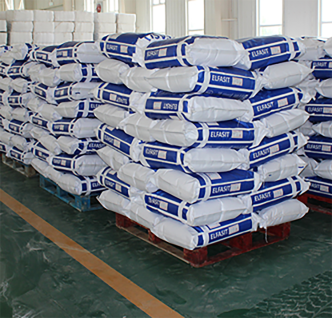
11月 . 16, 2024 01:01 Back to list
hydroxyethyl cellulose thickener
Understanding Hydroxyethyl Cellulose Thickener
Hydroxyethyl cellulose (HEC) is a non-ionic, water-soluble polymer derived from natural cellulose. It has gained significant attention in various industries, particularly in cosmetics, pharmaceuticals, food, and construction, due to its remarkable thickening, gelling, and film-forming properties. This article will delve into the characteristics, applications, and benefits of hydroxyethyl cellulose thickener.
What is Hydroxyethyl Cellulose?
Hydroxyethyl cellulose is produced through the reaction of cellulose with ethylene oxide. The result is a versatile substance that exhibits excellent thickening capabilities, making it a staple in formulations where viscosity control is crucial. HEC is a white, odorless powder that is readily soluble in cold or hot water, forming a clear, viscous solution. Its solubility is pH-independent, which means it dissolves in a wide range of conditions, enhancing its utility in various applications.
Applications of Hydroxyethyl Cellulose
1. Cosmetics and Personal Care Products HEC is widely used in lotions, creams, shampoos, and gels due to its ability to modify rheological properties, which affects the flow and texture of the products. It helps stabilize emulsions and enhances the sensory feel on application, making products smoother and silkier.
2. Pharmaceuticals In the pharmaceutical industry, hydroxyethyl cellulose is used as a thickener in topical formulations such as gels and ointments. It also acts as a binder and film-former in tablets and capsules, ensuring proper consistency and dosage control.
3. Food Industry HEC serves as a food additive under the E number E462, where it functions as a thickener, stabilizer, and emulsifier. It is used in sauces, dressings, and other processed foods to enhance texture and improve mouthfeel.
4. Construction and Building Materials In construction, hydroxyethyl cellulose is incorporated into paints, coatings, and adhesives as a thickener. It improves workability, reduces sagging, and enhances water retention, contributing to better performance and durability of building materials.
hydroxyethyl cellulose thickener

5. Agriculture HEC is also utilized in agriculture as a viscosity modifier in pesticide formulations, aiding in the controlled release of active ingredients and ensuring even distribution during application.
Benefits of Hydroxyethyl Cellulose
The popularity of hydroxyethyl cellulose as a thickener is driven by its numerous benefits
- Non-toxic and Biodegradable Being derived from natural cellulose, HEC is non-toxic, making it safe for use in food and personal care products. Its biodegradable nature also aligns with sustainable practices.
- Versatile and Easily Adjustable Viscosity The viscosity of HEC solutions can be adjusted by altering concentration, allowing for precise control over the texture of formulations. This versatility makes it suitable for a wide range of applications.
- Thermal Stability HEC exhibits thermal stability, retaining its properties even under extreme temperatures, making it ideal for products that undergo heating during processing.
- Chemical Resistance HEC solutions are resistant to many chemicals, making them suitable for formulations in various pH environments and conditions.
Conclusion
In conclusion, hydroxyethyl cellulose thickener stands out as a multifunctional ingredient that plays a crucial role in enhancing the performance and quality of various products across multiple industries. Its ability to modify texture, stabilize emulsions, and provide a pleasant sensory experience has solidified its position as a vital component in cosmetic, pharmaceutical, food, and construction applications. As industries continue to seek sustainable and effective solutions, hydroxyethyl cellulose is expected to remain a key player in formulation technologies. Whether you're a manufacturer or a consumer, understanding the benefits and applications of hydroxyethyl cellulose can help appreciate its significance in enhancing product efficacy and quality.
-
Versatile Hpmc Uses in Different Industries
NewsJun.19,2025
-
Redispersible Powder's Role in Enhancing Durability of Construction Products
NewsJun.19,2025
-
Hydroxyethyl Cellulose Applications Driving Green Industrial Processes
NewsJun.19,2025
-
Exploring Different Redispersible Polymer Powder
NewsJun.19,2025
-
Choosing the Right Mortar Bonding Agent
NewsJun.19,2025
-
Applications and Significance of China Hpmc in Modern Industries
NewsJun.19,2025







